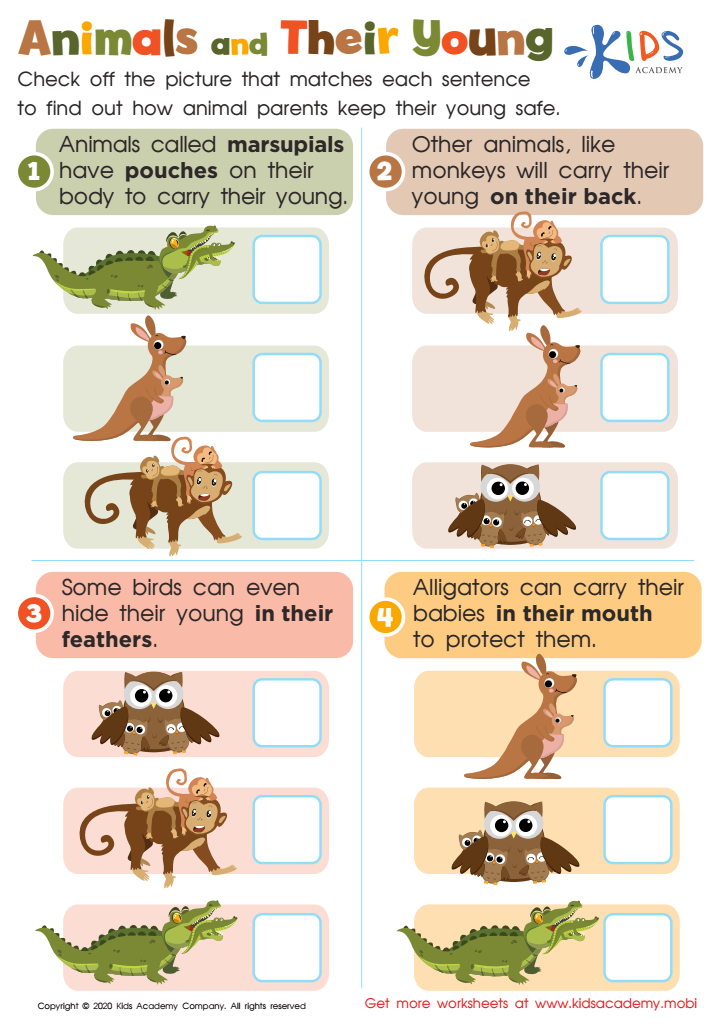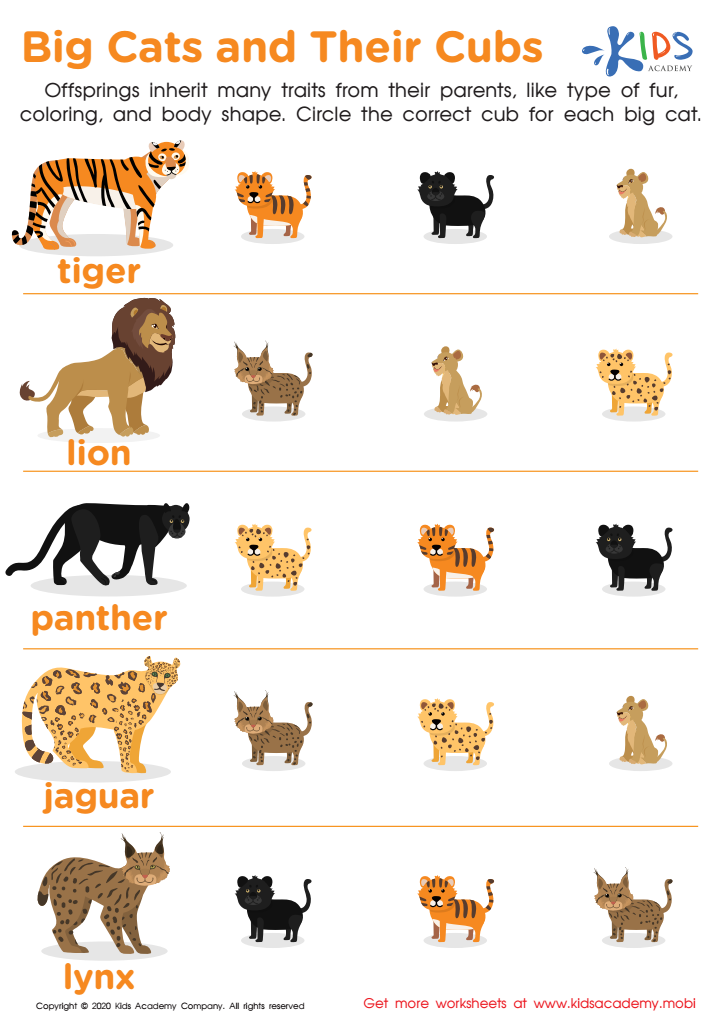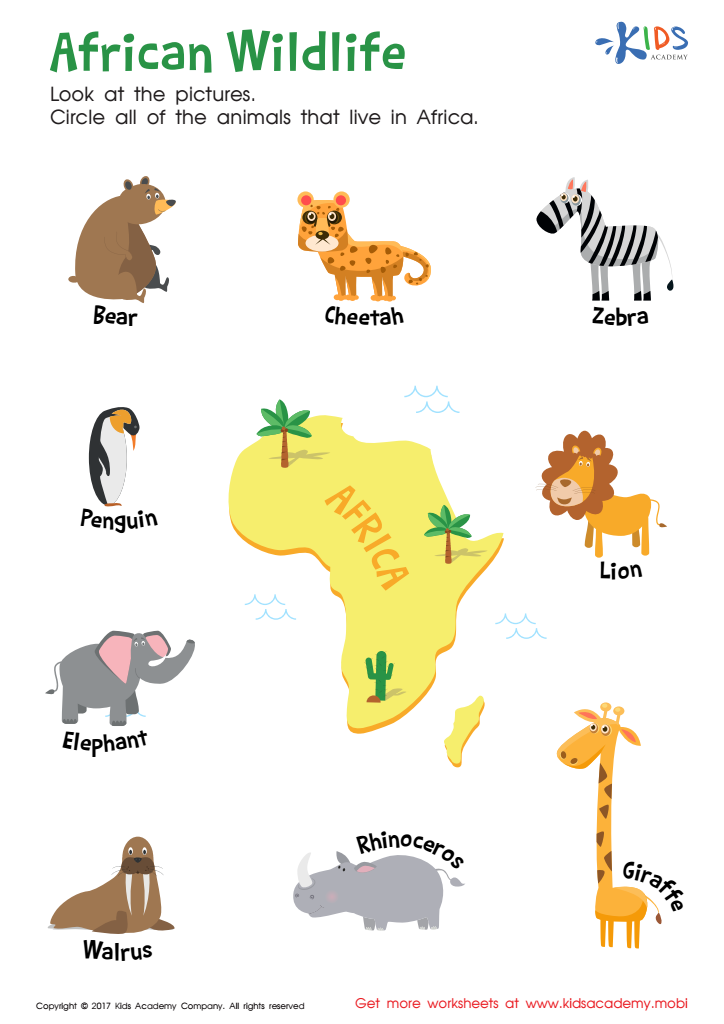Animal recognition Science Worksheets for Ages 7-8
3 filtered results
-
From - To
Unlock your child's love for science with our Animal Recognition Science Worksheets for ages 7-8! These engaging printables from Kids Academy bring the wonders of the animal kingdom to your child's fingertips, enhancing their identification and classification skills. Each worksheet is tailor-made to encourage curiosity and critical thinking, perfect for young learners. Vibrant images and age-appropriate activities make learning about animals fun and interactive. Discover new creatures, explore fascinating facts, and develop scientific inquiry skills. Ideal for both classroom use and at-home learning, our worksheets will inspire the next generation of animal enthusiasts!


Animals and Their Young Worksheet


Big Cats and Their Cubs Worksheet
Caring about animal recognition science for children aged 7-8 is important for several reasons. Firstly, it nurtures their natural curiosity about the world and fosters a love for learning. At this age, children are particularly receptive to engaging with their environment, and understanding animals helps develop observational skills and scientific thinking.
Moreover, learning about animal behavior, habitats, and adaptations enhances their cognitive skills. It introduces them to fundamental biological concepts and teaches them to categorize and compare different species, nurturing critical thinking. Teachers and parents who encourage this interest help build a strong foundation for future STEM (Science, Technology, Engineering, and Mathematics) learning.
Animal recognition also promotes empathy and respect for living creatures, which is crucial for developing compassion and social responsibility. Understanding how different animals live and interact with their environment can inspire children to care for nature and advocate for wildlife conservation.
Furthermore, animal recognition activities can be highly interactive and fun, involving games, field trips, and direct observation, which make learning enjoyable and memorable. This hands-on approach reinforces knowledge retention and encourages active participation, making education a delightful journey.
Ultimately, incorporating animal recognition science into early education supports cognitive development, empathy, and a lifelong passion for science and the natural world, making it a worthwhile pursuit for parents and teachers.
 Assign to My Students
Assign to My Students





















